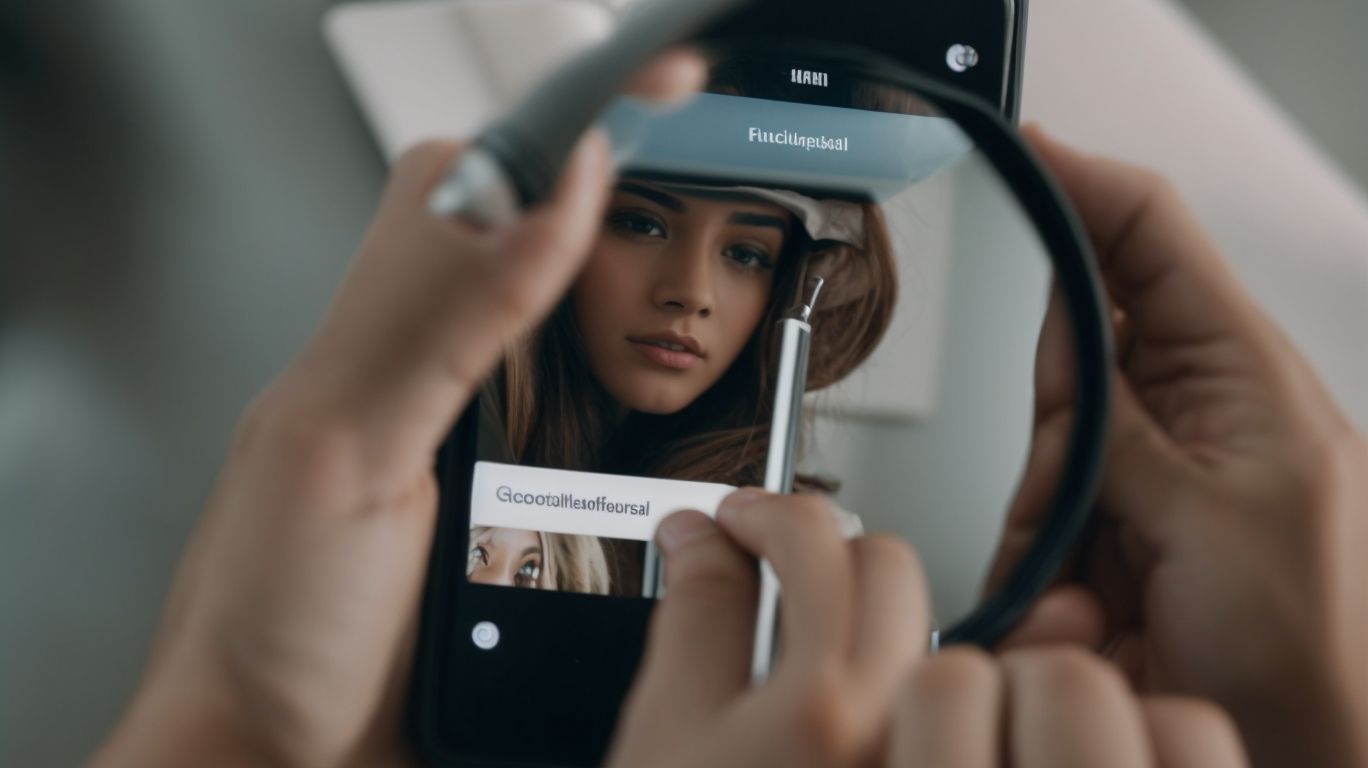

In today’s digital age, influencer marketing has become a powerful tool for brands to reach their target audience.
This article will discuss the significance of ethics in influencer marketing, the consequences of unethical practices, and provide practical tips for engaging with influencers responsibly.
From transparency and authenticity to fostering long-term relationships, understanding and implementing ethical practices is crucial for the future of influencer marketing.
Let’s explore how to navigate this evolving landscape and ensure a positive impact on both brands and consumers.

Credits: Pressreleaselogic.Com – Douglas Walker
Influencer marketing is a strategic approach where brands collaborate with influential individuals, known as influencers, to promote their products or services to a targeted audience.
These influencers, often with a substantial following on various social media platforms, have built credibility and trust with their audience, making their recommendations and endorsements powerful in influencing consumer behavior.
Influencer marketing leverages this trust and authenticity to create a more genuine connection between brands and customers, leading to higher engagement rates and conversions.
By tapping into the influencer’s reach and influence, companies can expand their brand awareness, reach new demographics, and establish a more personal connection with potential customers.
This type of marketing is particularly effective in reaching younger generations who value peer recommendations over traditional advertisements, making it a key strategy for brands looking to stay relevant and resonate with their target audience.

Credits: Pressreleaselogic.Com – Robert Allen
Ethical influencer marketing plays a crucial role in fostering trust, transparency, and social responsibility within the industry, ensuring that brands maintain authenticity and credibility in their campaigns.
By leveraging ethical practices in influencer marketing, companies can build lasting relationships with their audience based on mutual respect and honesty. When influencers align with a brand’s values and mission, it reinforces the authenticity of the partnership and resonates more with consumers. This alignment not only enhances brand reputation but also cultivates a sense of social responsibility, where businesses are seen as ethical entities contributing positively to society. This ethical approach goes beyond mere transactions, transforming business-consumer interactions into meaningful connections built on trust and shared values.

Credits: Pressreleaselogic.Com – Brian Taylor
Unethical influencer marketing can lead to detrimental consequences such as eroding consumer trust, creating a negative brand image, and compromising the authenticity of brand-customer relationships.
In today’s digital landscape, consumers are bombarded with influencer content on social media platforms, blurring the lines between genuine endorsements and paid promotions. When influencers promote products without disclosing their sponsorships, it deceives consumers by presenting biased information as impartial recommendations. This lack of transparency not only damages consumer trust but also tarnishes the brand reputation in the eyes of the audience. As a result, consumers may feel deceived and disillusioned, leading to a breakdown in the long-term relationship between the brand and its customers.
Misleading advertising in influencer marketing can violate regulations set by governing bodies such as the United States Federal Trade Commission (FTC), leading to legal repercussions and damage to brand integrity.
When influencers fail to disclose sponsored content adequately, audiences may be misled into thinking they are receiving unbiased opinions rather than paid promotions. This not only undermines consumer trust but also goes against FTC guidelines that require clear disclosure of any material connections between influencers and brands.
Transparency is key in influencer marketing to maintain credibility and foster genuine relationships with followers. Failure to comply with FTC regulations can result in penalties, fines, and even potential lawsuits, tarnishing both the influencer’s reputation and the brand’s image.
Engaging in unethical influencer marketing practices can tarnish a brand’s image, highlighting the importance of upholding ethical standards to safeguard brand reputation and credibility.
Consumers today are more aware and conscious of the values and behavior of the brands they support. With the power of social media and influencer marketing, brands can reach a wide audience quickly, making it crucial to prioritize ethical considerations in marketing strategies.
When ethical standards are compromised for short-term gains, the long-term impact on consumer trust and loyalty can be significant. Brands that are associated with unethical practices risk losing customer confidence, which can lead to decreased sales and ultimately harm the corporate integrity of the organization.
Unethical influencer marketing practices can lead to a loss of trust from consumers, jeopardizing influencer partnerships and eroding the sense of community built around authentic brand endorsements.
When consumers feel betrayed by influencer misconduct, the ripple effect extends beyond mere disappointment. The breakdown of trust can cascade through the influencer ecosystem, creating a domino effect that impacts not only the immediate partnership but also future collaborations and brand credibility. Trust is the cornerstone of successful influencer marketing, and once compromised, rebuilding it becomes an uphill battle.
In addition, the fallout from unethical practices can tarnish the vibrant sense of community that authentic endorsements cultivate. Community engagement thrives on shared values and mutual respect, both of which are severely undermined when trust is shattered.

Credits: Pressreleaselogic.Com – Eric Taylor
Practicing responsible influencer marketing involves prioritizing authenticity, adhering to disclosure guidelines, and ensuring that brand collaborations resonate with the audience in a transparent manner.
Regarding authenticity, influencers should only promote products or services that align with their personal brand values and that they genuinely believe in. This builds trust with their followers and establishes a credible reputation in the industry.
Transparency is key in influencer marketing, so clearly disclosing sponsored content or partnerships is essential to maintain honesty with the audience. Engaging with followers through meaningful conversations and interactions further reinforces the relationship between influencers and their audience, fostering a sense of community and loyalty.
Transparency and clear disclosure are essential components of responsible influencer marketing, aligning campaigns with regulatory standards and fostering trust among consumers.
Ensuring compliance with FTC regulations is crucial to avoid potential legal ramifications and maintain credibility in the rapidly evolving digital landscape. Disclosure of partnerships must be prominent and easily understood, whether through hashtags like #ad or explicitly stating the nature of the relationship in captions. Transparency guidelines help prevent deceptive practices and protect consumers from misleading content. Honest communication builds a foundation of trust with the audience, enhancing brand reputation and loyalty in the long run.
Maintaining authenticity and relevance in influencer partnerships is crucial for creating genuine connections with the audience and ensuring that promotional content aligns with brand values.
When brands collaborate with influencers who reflect similar values and beliefs, the message conveyed is more likely to resonate with the audience on a deeper level.
Authenticity in influencer collaborations not only fosters trust among followers but also elevates the brand’s reputation and credibility in the eyes of consumers.
By prioritizing authenticity over follower count or reach, brands can cultivate more sustainable relationships with influencers, leading to long-term mutual benefits and continued audience engagement.
Respecting the audience and influencers by upholding ethical practices is fundamental in responsible influencer marketing, demonstrating a commitment to fostering positive relationships and community values.
Influencer marketing has evolved into a powerful tool for brands seeking authentic connections with their target audiences. By prioritizing respect for both the audience and the influencer, companies can build trust and credibility in a saturated digital landscape. This emphasis on ethical values not only enhances brand reputation but also contributes positively to the influencer’s reputation within their community. Understanding the impact of responsible engagement is crucial in building lasting partnerships that resonate with shared values, further advancing the reach and effectiveness of collaborative campaigns.

Credits: Pressreleaselogic.Com – Matthew Roberts
Identifying ethical influencers involves evaluating their genuine engagement with the audience, clear disclosure of partnerships, and alignment with brand values to ensure ethical and transparent collaborations.
One crucial aspect to look out for when assessing influencer authenticity is the depth of engagement with their followers. This goes beyond mere numbers and delves into the quality of interactions, such as meaningful conversations, responses, and active participation. A transparent disclosure of any paid partnerships or endorsements is essential in building trust with the audience. Influencers who clearly communicate these relationships demonstrate honesty and integrity.
Ethical influencers prioritize genuine engagement with their audience, fostering long-term relationships built on trust, honesty, and shared ethical values.
When ethical influencers interact with their followers in an authentic manner, it goes beyond mere transactions. This deep connection instills a sense of credibility and reliability, crucial in the realm of influencer marketing. Such genuine engagement not only enhances brand loyalty but also boosts overall brand reputation.
Building upon trustworthy and transparent interactions transforms one-time viewers into committed supporters, cheering for the influencer’s success and the brand’s journey. These sustainable partnerships play a pivotal role in paving the way for ongoing collaborations that withstand the test of time and market fluctuations.
Clear disclosure of partnerships is a key aspect of ethical influencer marketing, ensuring compliance with disclosure guidelines and fostering transparency in brand collaborations.
When influencers clearly indicate their partnerships, it helps to uphold ethical standards within the industry, builds credibility with their audience, and maintains goodwill with regulatory bodies.
The disclosure of sponsorships, endorsements, or any form of compensation is not just about following rules but is fundamentally about building trust. In an era where authenticity and transparency are valued more than ever, audiences appreciate knowing when content is influenced by partnerships.
By establishing clear boundaries and openly communicating about collaborations, influencers can not only meet regulatory requirements, but also cultivate a deep sense of trust with their followers.
Ethical influencers align with brand values by considering ethical considerations such as sustainability, social impact, and consumer trust, establishing a foundation for authentic and purpose-driven collaborations.
These influencers play a crucial role in promoting responsible marketing practices that resonate with socially conscious consumers. By embodying values like transparency and inclusivity, they enhance brand credibility and foster long-term customer loyalty. Their commitment to sustainable initiatives not only ensures environmental preservation but also sets a positive example for followers. Through genuine partnerships, brands can leverage the influencer’s authenticity to strengthen brand reputation while simultaneously contributing to meaningful social change.
Engaging ethically with influencers involves establishing clear guidelines and expectations, monitoring and evaluating influencer content, and fostering long-term relationships based on transparency and mutual respect.
Setting clear guidelines from the outset is essential in maintaining ethical practices when collaborating with influencers. This helps ensure that both parties are aligned on expectations and values, minimizing the risk of misunderstandings or miscommunications.
Consistent communication and genuine engagement are key in fostering these relationships, creating a solid foundation for sustainable and mutually beneficial partnerships.”
Establishing clear guidelines and expectations is essential for ethical engagement with influencers, ensuring that collaborations align with ethical values, brand objectives, and audience interests.
When entering into partnerships with influencers, brands should prioritize transparency, authenticity, and mutual respect. By setting specific parameters regarding content creation, product promotion, and disclosure practices, both parties can uphold integrity and credibility in their collaborations. It is crucial to establish open communication channels and foster a trusting relationship built on shared values and goals. Ensuring that the influencer’s personal brand aligns with the core values of the company can enhance brand perception and resonate more effectively with the target audience.
Monitoring and evaluating influencer content is crucial in maintaining brand integrity, safeguarding against unethical practices, and ensuring that endorsements align with brand values and resonate with the target audience.
In influencer marketing, content monitoring plays a pivotal role in upholding brand reputation and fostering trust with consumers. By regularly assessing influencers’ posts and collaborations, brands can mitigate risks of being associated with controversial or harmful content, thus protecting their image and credibility. Ethical considerations come into play as influencers hold significant power to influence consumer behavior, making it essential to ensure that partnerships are transparent and authentic. The impact of influencer endorsements on consumer perception cannot be overstated, as it shapes how audiences perceive a brand’s values and authenticity.
Fostering long-term relationships with influencers is key to sustainable and ethical engagement, building trust, loyalty, and a shared commitment to ethical practices and brand values.
Developing enduring partnerships with influencers not only ensures a consistent representation of brand values but also allows for an authentic connection with the audience, fostering credibility and loyalty over time. By prioritizing sustainable collaborations, brands can tap into the influencer’s established credibility and reach, leading to a more impactful and enduring presence in the market. Emphasizing ethical practices in these relationships not only reflects positively on the brand’s image but also creates a lasting impact on consumer perception and trust.
The future of ethical influencer marketing is poised for significant changes, with a focus on increased regulations, a demand for authenticity, and a shift towards micro-influencers and niche markets to ensure genuine and impactful brand collaborations.
One of the prominent trends in ethical influencer marketing is the heightened regulatory environment that influencers and brands need to navigate. Regulatory bodies are increasingly scrutinizing influencer partnerships, requiring clear disclosures and transparency to protect consumers from deceptive practices.
Furthermore, authenticity has become a cornerstone for successful influencer collaborations. Audiences are more discerning, seeking genuine connections with influencers who align with their values and beliefs. This shift has led to brands prioritizing authenticity over reach.
In this evolving landscape, micro-influencers are gaining traction for their ability to engage niche audiences authentically. Brands are recognizing the value of these smaller-scale influencers in creating meaningful connections and driving conversions, leading to a rise in partnerships with micro-influencers across various industries.
The industry anticipates a rise in regulations and guidelines governing influencer marketing practices, emphasizing the importance of compliance with regulatory bodies such as the Federal Trade Commission (FTC) to uphold ethical standards and consumer protection.
Ensuring transparency in sponsored content, disclosure requirements, and the proper labeling of paid partnerships are key aspects mandated by the FTC guidelines. Brands and influencers must navigate these regulations to maintain trust with their audience and avoid penalties for non-compliance. The evolving legal landscape calls for a more vigilant approach towards brand collaborations to align with the changing regulatory environment. Upholding these standards not only protects consumers but also safeguards the reputation and credibility of businesses in the influencer marketing realm.
The future of ethical influencer marketing will prioritize authenticity and transparency in brand collaborations, emphasizing the value of ethical practices, genuine engagement, and transparent communication to build lasting trust with consumers.
This focus on authenticity underscores the importance of influencers aligning with brands that reflect their personal values and beliefs, fostering a genuine connection with their audience.
Genuine engagement, marked by meaningful interactions rather than superficial promotion, establishes a sense of trust and credibility among followers.
Transparent communication between influencers and their followers about sponsored content and partnerships enhances brand credibility and helps manage expectations, contributing to a more authentic and ethical influencer marketing landscape.
A notable shift towards micro-influencers and niche markets is expected in ethical influencer marketing, highlighting the value of targeted audience engagement, authentic partnerships, and community-driven campaigns for enhanced brand visibility and impact.
Brands are recognizing the strength of micro-influencers in fostering genuine connections with specific demographics, leading to higher engagement rates and increased trust among followers. By tapping into these niche markets, companies can leverage the credibility and authenticity that smaller influencers bring to the table, resulting in more meaningful interactions and stronger brand loyalty. Collaborating with influencers who are deeply rooted in their communities allows brands to access untapped audiences and establish a more personalized approach to marketing, aligning with the growing demand for authenticity and transparency in the digital space.
Ethical influencer marketing refers to the practice of promoting products or services through influential individuals in a responsible and transparent manner. It is important because it ensures trust and authenticity between the influencer, brand, and audience.
To ensure ethical influencer marketing, it is important to have a clear agreement between the influencer and brand, disclose any sponsored content, and only work with influencers who align with your brand values.
Engaging in unethical influencer marketing can lead to backlash from the audience, damage to the brand’s reputation, and potential legal consequences for false or misleading advertising practices.
Yes, influencers can be held accountable for their actions in influencer marketing. The Federal Trade Commission (FTC) has specific guidelines for influencer marketing and non-compliance can result in penalties.
To ensure responsible and respectful influencer marketing, it is important to thoroughly research the influencer’s content, audience demographics, and engagement rates. Additionally, provide clear guidelines and expectations for the influencer to follow.
Yes, transparency is crucial in ethical influencer marketing. It allows the audience to understand the relationship between the influencer and brand, and builds trust and credibility for both parties. It also ensures compliance with FTC guidelines.
Leave a Message Bottom Right
We Reply Fast